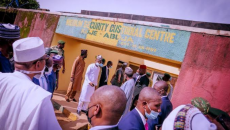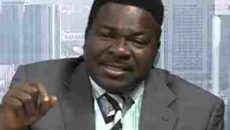For the fifth time since independence, Nigeria has been elected to serve as the president of the United Nations Security Council on Tuesday, April1, 2014. Joy Ogwu, Nigeria’s permanent representative to the UN, assumed the one-month rotational position from Sylvie Lucas, the permanent representative of Luxembourg, who held the presidency for the month of March 2014.
Already, Ogwu, former head of the Nigerian Institute of International Affairs, NIIA, had listed major issues she hopes to push forward as part of her agenda for the month. These are three open debates to address the Middle East crisis, which encompasses Syria, Lebanon, Israel and Palestine; women, and maintenance of international peace and security. “Considering the turmoil in the world, it is going to be a tough agenda but we will approach it with the deepest sense of duty and I am sure we will have the support of our colleagues,” Ogwu said.
Nigeria was elected a non-permanent member of the Security Council on October 17, 2013 and will serve on the Council for the period 2014 to 2015. In the years 1966 – 1967, 1978 – 1979, 1994 – 1995 and 2011 – 2012, Nigeria had also served in the Council charged with the maintenance of international peace and security. In the meantime, the country chairs two Security Council Committees- the Security Council Committee established pursuant to Resolution 2048 of 2012 concerning Guinea-Bissau, and the Ad Hoc Working Group on Conflict Prevention and Resolution in Africa.
The Security Council is composed of five permanent members: China, United States, Britain, France, and Russia and 10 non-permanent members. The presidency of the Council is rotated among members on a monthly basis according to the English-language alphabetical order of the countries’ names.
With the support of all other members of the Council, Nigeria is expected to use its month-long presidency to actively promote the cause of international peace and security, in line with the principles of the UN Charter and the mandate of the Council.
Follow Us on Social Media


 WhatsApp us
WhatsApp us